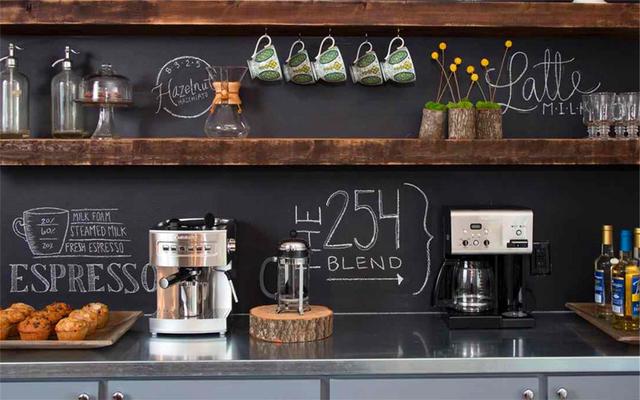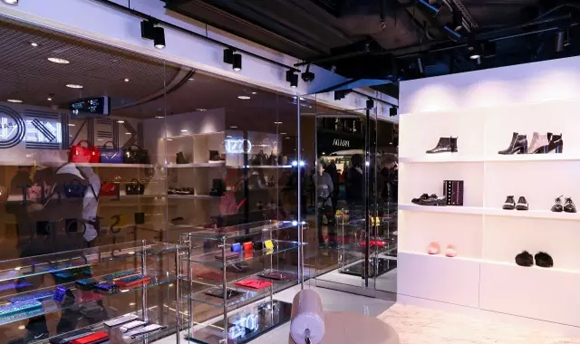Japanese Media: increasingly fierce Competition among Chinese chain Coffee shops Competition of Starbucks VS Local Coffee Enterprises
Competition for Coffee in China the competition among Chinese coffee shops is becoming increasingly fierce. Starbucks Coffee of the United States, the world's largest coffee shop chain, has proposed to open 3400 stores in China by 2019, which will become the country with the largest number of Starbucks overseas stores. At the same time, local Chinese companies such as Pacific Coffee are catching up by developing localized menus such as oolong tea lattes. Due to China's economic slowdown and anti-corruption campaign, high consumption is weak, and coffee shops are popular among young people as a "light extravagant" consumption pattern. Companies believe that the potential demand in this area is huge, so they are speeding up the pace of opening stores in China.
Xiao Qi, 26, works for an IT company in Shanghai. He is used to going to Starbucks by himself once a week because "the environment of McDonald's is very noisy and the table is not clean, so it is more leisurely here." In a quiet space, it is a pleasure for him to sit on the sofa while reading while drinking coffee.
Xiao Qi's monthly income is 15000 yuan, far higher than the average salary of about 5400 yuan in Shanghai. A Starbucks latte costs about 30 yuan, and if you order some desserts and biscuits, it usually costs about 100 yuan, which is five times the cost of a normal lunch. But Xiao Qi thinks: "as long as you feel happy, you don't think it's too expensive."
With the development of China's economy, the per capita GDP of Shanghai and other major coastal cities is even equivalent to that of developed countries, reaching US $15-20, 000. Against this background, there are more and more "petty bourgeoisie" young people who prefer the European and American way of life, unlike their parents who like to be lively. For these petty bourgeoisie, going to a fashionable coffee shop has become a typical behavior to show their light extravagance.
To this end, various coffee chains have accelerated the speed of opening stores in China. Starbucks has opened about 1600 stores in about 90 cities in China, making it the largest coffee shop chain in China. Starbucks is not only entering big cities, but also expanding the number of stores in local cities. Starbucks plans to open 1800 new stores in China by 2019, with a total of more than 3400 stores in China. This number is far smaller than Starbucks' 12000 stores in the United States, but it has the largest number of stores in its overseas countries.
COSTA Coffee in the UK has merged with two local companies, bringing the total number of stores in China to 344 by 2014. COSTA Coffee has positioned China as a potential market and plans to double the number of stores to 900 by 2020. Starbucks and COSTA, whose stores are mainly concentrated in large shopping malls, have received a steady stream of invitations to open coffee shops, which are an important element of attracting customers to commercial facilities, according to people involved.
China's local enterprises are also actively fighting. The price of coffee offered in the store is basically the same as that of Starbucks. Hong Kong's Pacific Coffee has partnered with China Resources Wanjia to open about 260 stores. And usually open on the first floor of the office building and hospitals and other people flow more "the best location". Pacific Coffee plans to open 1000 stores as soon as possible.
In addition to general drinks such as coffee lattes, Pacific Coffee features "national wine coffee" with high-grade liquor and "oolong tea lattes" made with Yunnan tea and milk. The menu also includes traditional Chinese snacks such as zongzi. Pacific Coffee hopes to differentiate itself from Starbucks with food and drinks in line with Chinese eating habits.
Senna left Bank International Restaurant, the largest coffee chain in mainland China, has opened 340 "SANA ZOAN" coffee shops and has further expanded its store network through listing financing. South Korea's Man Coffee operates about 70 "MAAN COFFEE" and is stationed in Beijing's Aeon Shopping Mall, which opened in September 2015, centering on coastal cities to speed up the opening of new stores. The goal of Man Coffee is to open 3000 stores within 10 years.
Source: world wide Web
Important Notice :
前街咖啡 FrontStreet Coffee has moved to new addredd:
FrontStreet Coffee Address: 315,Donghua East Road,GuangZhou
Tel:020 38364473
- Prev

A corner, a family cafe, satisfy your feelings of owning a romantic cafe
Less than one square meter is enough ~ when you finally get home, sit on the sofa and open a book comfortably, do you feel like you have a cup of coffee in your hand? When friends get together at the weekend, everyone sits around the table. Apart from monotonous white water and cheap instant coffee, what else can we drink? Starbucks takeout is not the solution to these problems. Occupy only one corner and create a permanent family coffee.
- Next

The new Kenzo Takada KENZO store in Harbour City, Hong Kong launches the combination of mobile cafe fashion and coffee.
KENZO has created a new fashion space in Harbour City, Hong Kong, and launched a highly acclaimed chic mobile cafe, fully reflecting the playful universe led by creative directors CARON LIM and HUMBERTO LEON. The new Kenzo Takada KENZO store in Harbour City, Hong Kong covers an area of 100 square meters, featuring classic accessories, leather products, shoes, as well as a selection of premium men's and women's wear.
Related
- Can lightly roasted coffee beans be used to extract espresso? How finely should you grind high-quality coffee beans to make Italian latte?
- What is the difference between the world's top rose summer coffee and Yejia Shefi? What are the flavor characteristics of Yega Shefi coffee and Panama rose summer?
- The ceremony is full! Starbucks starts to cut the ribbon at a complimentary coffee station?!
- A whole Michelin meal?! Lucky launches the new "Small Butter Apple Crispy Latte"
- Three tips for adjusting espresso on rainy days! Quickly find the right water temperature, powder, and grinding ratio for espresso!
- How much hot water does it take to brew hanging ear coffee? How does it taste best? Can hot water from the water dispenser be used to make ear drip coffee?
- What grade does Jamaica Blue Mountain No. 1 coffee belong to and how to drink it better? What is the highest grade of Blue Mountain coffee for coffee aristocrats?
- What are the flavor characteristics of the world-famous coffee Blue Mountain No. 1 Golden Mantelin? What are the characteristics of deep-roasted bitter coffee?
- Can I make coffee a second time in an Italian hand-brewed mocha pot? Why can't coffee be brewed several times like tea leaves?
- Hand-brewed coffee flows with a knife and a tornado. How to brew it? What is the proportion of grinding water and water temperature divided into?

